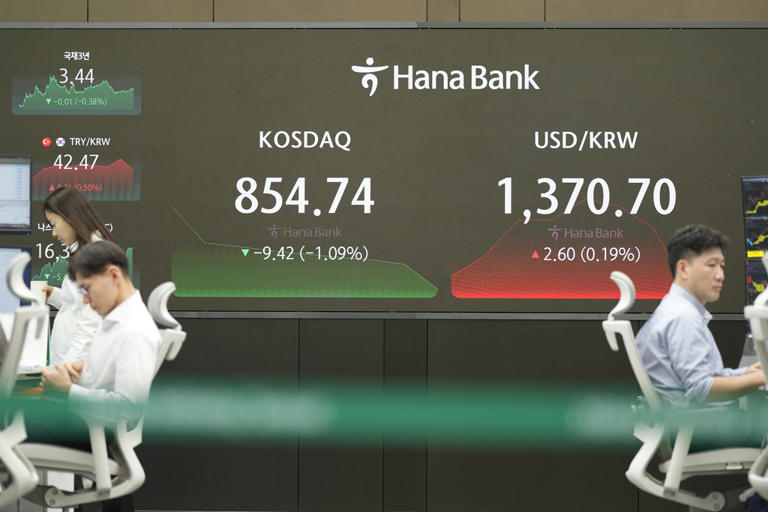On Monday, Asian stock markets exhibited a mixed trend, with various factors influencing investor sentiment and trading dynamics across the region. The performance of major indices reflected a delicate balance between positive economic indicators and concerns stemming from geopolitical tensions and policy uncertainties.
In Japan, the benchmark Nikkei 225 index edged slightly lower by 0.1% to close at 38,179.46. Investors awaited the release of the country’s first-quarter economic growth figures later in the week, anticipating insights into the state of Japan’s recovery from the pandemic-induced slowdown.
Conversely, Hong Kong’s Hang Seng index recorded a modest gain of 0.6% to reach 19,073.38. The upswing was fueled by increased buying activity in technology shares, providing a boost to market sentiment amid ongoing economic recovery efforts.
Meanwhile, the Shanghai Composite index in China experienced marginal losses, dipping by 0.1% to settle at 3,142.61. The decline followed the release of Chinese inflation data, which revealed a third consecutive monthly increase in April’s consumer prices, coupled with a continued decline in the producer price index. The data underscored ongoing challenges in China’s efforts to manage inflationary pressures while supporting economic growth.
The prevailing sentiment in Asian markets was influenced by several key factors. Weak Chinese lending data and news of potential tariff hikes on Chinese exports by the U.S. government weighed on investor sentiment, raising concerns about the outlook for global trade and economic stability.
In South Korea, the Kospi index declined by 0.3% to 2,719.99, reflecting broader market uncertainties and cautious investor sentiment. Similarly, Australia’s S&P/ASX 200 index edged lower by 0.1%, reflecting mixed trading conditions and concerns about the impact of global economic headwinds on domestic markets.
However, Taiwan’s Taiex index bucked the regional trend, posting a gain of 0.7% following positive earnings reports from leading companies, including TSMC. The surge in revenue reported by the semiconductor giant bolstered investor confidence and provided support to the broader market.
The performance of Asian stocks mirrored the mixed sentiment observed in global markets. While U.S. equities extended their winning streak for the third consecutive week, early gains were tempered by a discouraging report on U.S. consumer sentiment, raising concerns about the pace of economic recovery and the outlook for inflation.
In the bond market, Treasury yields rose following the release of the preliminary report on U.S. consumer sentiment, reflecting concerns about inflationary pressures and their potential impact on monetary policy decisions.
Overall, the mixed trading in Asian markets underscored the complex interplay of global economic factors and regional developments, highlighting ongoing concerns about inflation, trade tensions, and economic growth prospects in the post-pandemic era. Investors remained vigilant amid evolving market conditions, seeking clarity on key economic indicators and policy developments to inform their investment decisions.
